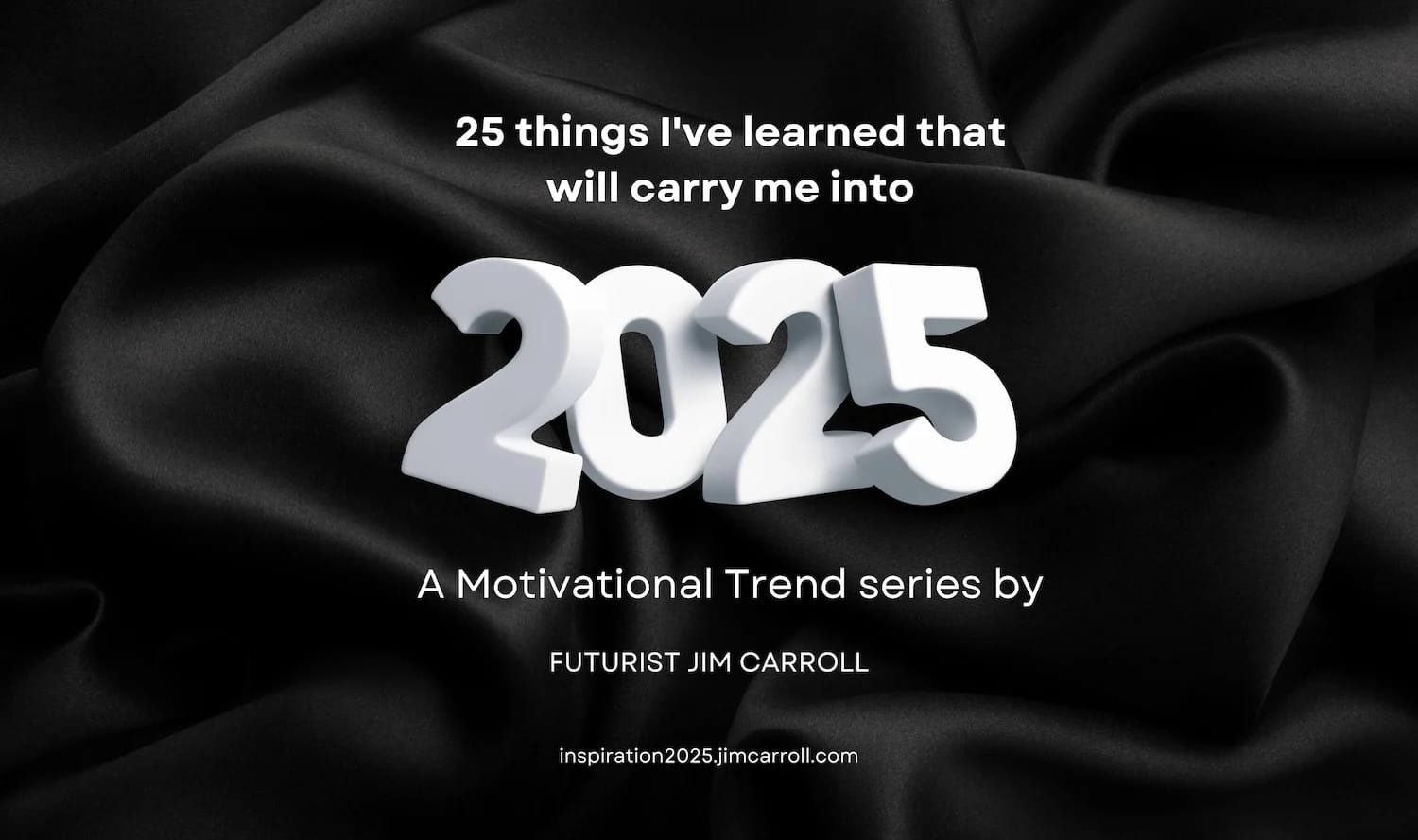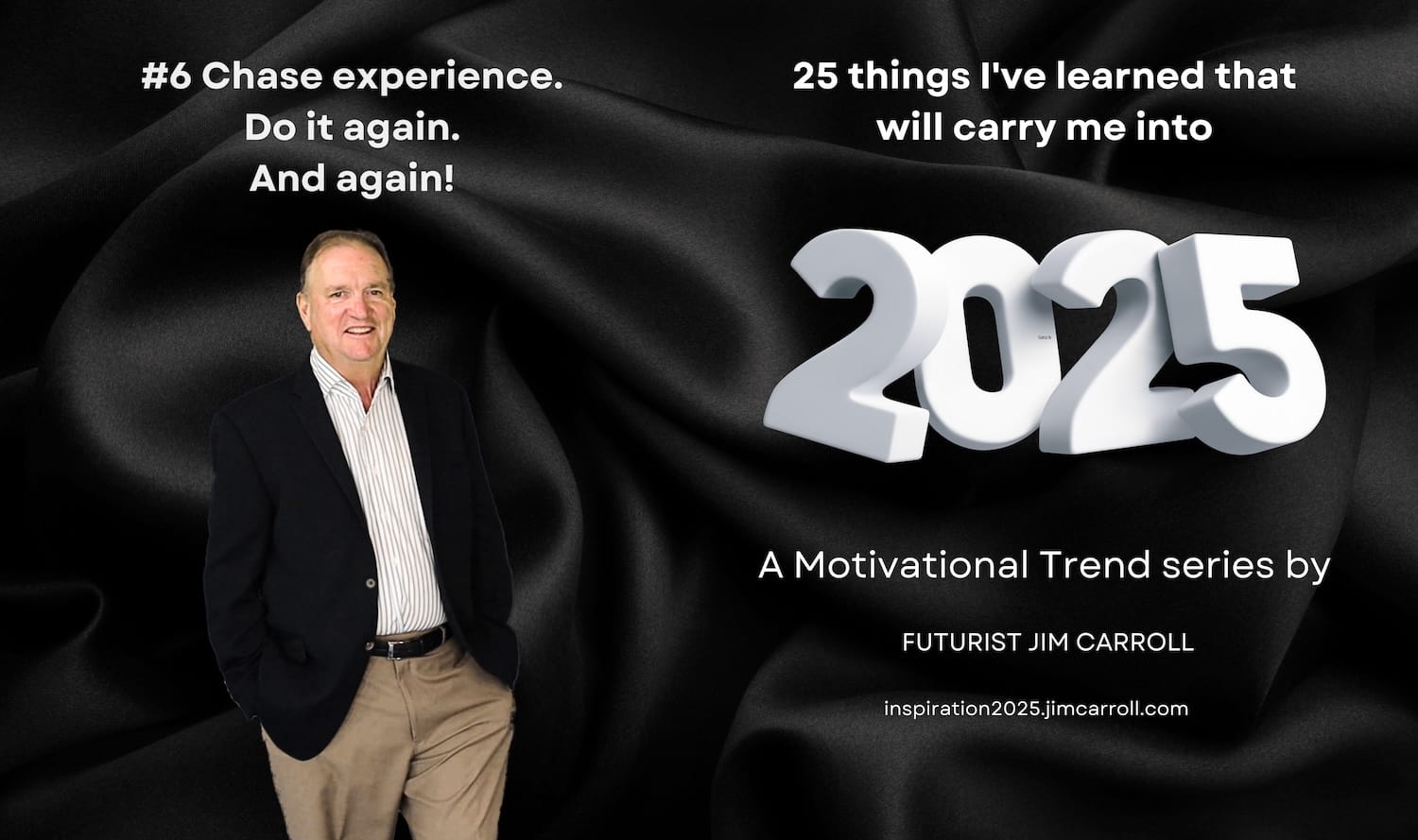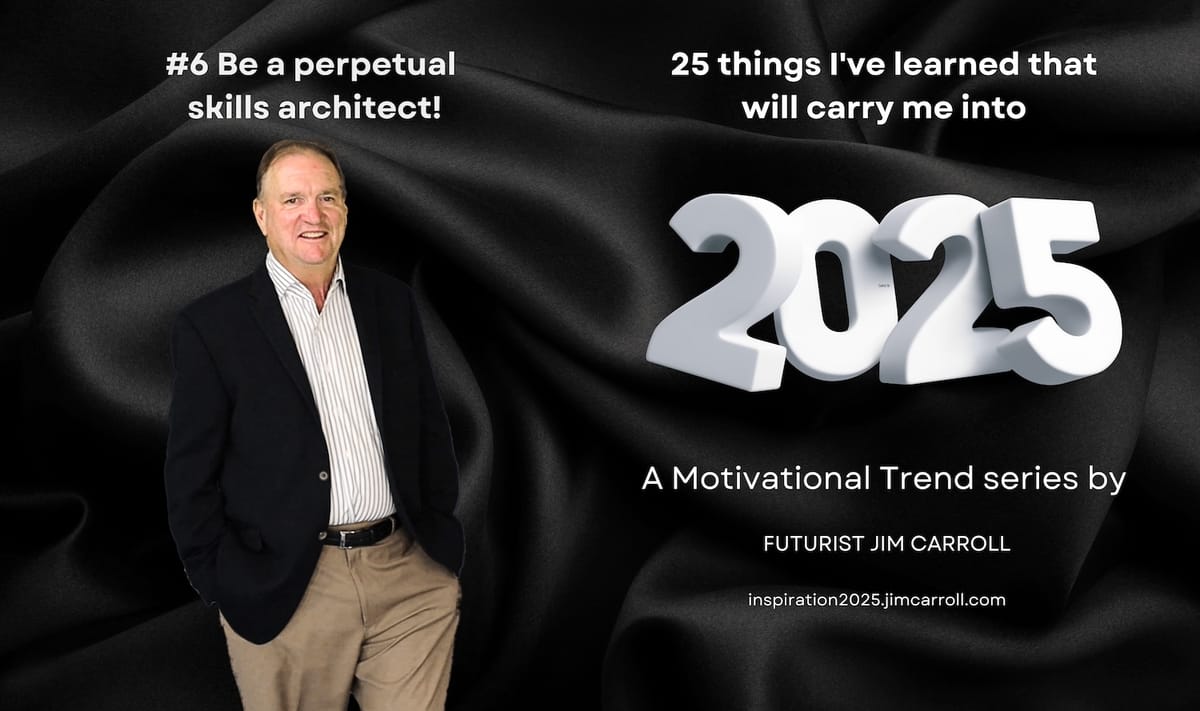"Be a perpetual skills architect!" - Futurist Jim Carroll
Futurist Jim Carroll is writing a series, "25 Things I've Learned That Will Carry Me Into 2025." He is putting this together based on his 30-year career as a futurist, trends, and innovation expert, advising leaders of some of the world's most prestigious organizations on how to align to a faster future. He intends for the series to provide valuable guidance to others eager to learn how to move through a year that promises to be volatile, unpredictable, and full of uncertainty. Each day, the post will go out on multiple mailing lists, social media networks, and to the Website https://2025inspiration.jimcarroll.com

Just do stuff.
Learn by doing.
Chase experience.
Do it again.
And again.
That's been my theory for many years, and that idea will continue to carry me into 2025.

That's how you move forward in today's fast-moving world.
Think about it - with fast science, accelerating knowledge, technological change, evolving skills - there's no time to study, precious little time for formal learning, and fleeting moments to solidify knowledge before it goes out of date. Go out, chase the knowledge, learn it, use it, and move to the next set of knowledge. Do it over again.
In that way, you become a perpetual skills architect.
Remember that phrase.
Here's what you need to know about navigating this transformative shift - we're living in what I call the "7x7x7 world" – in many industries, 7 months from now, 7% of what you know will be obsolete, and in just 7 years, the entire landscape of your field could be unrecognizable.
What's your plan?
You can't outlearn this pace through traditional methods. The only viable strategy? Immerse yourself in experiential knowledge. Learning by doing.
This means you need to master rapid knowledge acquisition. This relates to a fascinating pattern I'm seeing in some of my clients who have mastered the art of high-velocity learning - they're creating what I call "experience sprints." These are focused, intense periods of hands-on learning. Does some new problem, opportunity, challenge, or disruption emerge? Form a team, learn about the issue, take it on, build some experience around it, and tackle it before the next issue comes up. Do it again, and again. Think of it as the agile methodology applied to personal development - your learning cycles need to match the speed of change.
You should also think about the idea of being in a perpetual beta mode. Do you need to learn something new? Go at it! Your first attempt isn't version 1.0 – it's version 0.1. That's just a starting point in iterative knowledge acquisition - Silicon Valley has known this concept for years. The real innovation happens in versions 0.1 through 0.9 - this is where transformative learning occurs. You learn by doing. Waiting for perfection is a recipe for obsolescence.
That's what I call "iterative Intelligence" - the ability to learn, adapt, and reapply knowledge at previously impossible speeds, by repeating these steps over and over. This iterative development matters - each layer of experience builds on the previous one, compounding upon each other. More iterations mean more knowledge - more interactions lead to more experience. Each bit of experience builds up more experiential capital - and experiential capital becomes the method of moving forward.
With that, master what I call ‘just-in-time knowledge’ — getting the right knowledge, at the right time, for the right purpose. That’s your path to success right there.
With all this, what's the future telling us? The ability to rapidly acquire experiential knowledge is becoming the key differentiator between high-performance organizations and those at risk of disruption. I remember this observation from a CEO I worked with recently: "We don't have a knowledge problem. We have an experience velocity problem."
Solve that problem - the future belongs to those who chase experience with relentless determination.
The time to start was yesterday. The second-best time is now.
That's your future.
Are you ready?
Futurist Jim Carroll coined the phrase “just-in-time knowledge” more than 30 years ago as a way to define this trend.

